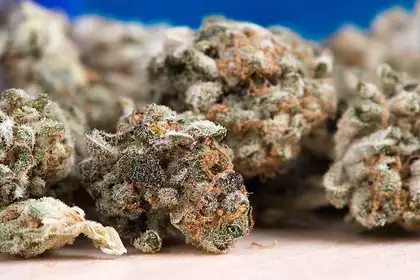

By Professor Sally Casswell
We must beware of extreme ideological positions in our cannabis discussion. In particular it would be good to acknowledge the "war on drugs" is not a particularly relevant concept. In fact we are moving towards decriminalisation of cannabis use in New Zealand due to police discretionary practices.
Ministry of Justice figures for 2017/18 show three people were imprisoned for cannabis possession and it is very likely they had an extensive conviction history — legalising cannabis possession will not reduce incarceration. But this is not to argue against an informed debate on cannabis in New Zealand, including the possibility of legalisation.
Cannabis use does not inevitably result in harm for the individual user, nor is it risk-free. Looking at the emerging evidence from the United States where several states have legalised cannabis, often allowing profit-making industries to take control, it is very likely that if we follow suit, thereby increasing availability and normalising use, we will experience more harm.
A recent review of US data has drawn attention to increases in cannabis potency, prenatal and unintentional childhood exposure and, in adults, an increase in cannabis use, fatal vehicle crashes, cannabis-related emergency room visits, and cannabis use disorder (which includes dependence and harms such as social and interpersonal problems and neglect of major roles in order to use).
About one in five lifetime users met criteria for cannabis use disorder.
The age at which people start regular cannabis use is a likely predictor of harm. The Christchurch longitudinal study found those who began using cannabis at earlier ages were at increased risk of adverse outcomes including lower levels of educational attainment, welfare dependence and unemployment and psychotic symptomatology.
A major US study has been launched which, over 10 years, will clarify the effects of adolescent cannabis use on cognitive abilities. In the meantime the precautionary principle would suggest working hard to limit young people's access to cannabis products.
What we learn from our experience with alcohol is that purchase age matters. The reduction of the purchase age from 20 to 18 increased access to 16 and 17-year-olds as friends who can purchase tend to supply large amounts to their slightly younger friends.
In regulated drug markets keeping purchase age high is a very effective way to reduce harm. However, it is necessary that the illicit market is gradually curtailed, which can be achieved through enforcement in combination with the convenience of the legal market.
Public ownership of supply and restriction of use to private settings is feasible for New Zealand. Again, learning from alcohol, retail in public ownership shows better outcomes compared with retail in private, for-profit, sales outlets.
Well managed publicly owned stores control the access of young people, hours of sale, facilitate minimum pricing (the money goes to the Government and can be used to respond to increased harm), and control the type of products sold, packaging and promotion.
In a legalised market, potency and the nature of the products available are important considerations. Legalised cannabis products will not be mainly plant material. A range of products are being developed by the transnational corporations, including beverages and edibles.
As others have said, we need to keep the industry at bay and our experience with tobacco and alcohol reinforces this. However, this will be difficult given the extent to which the alcohol transnational corporations have bought into the giant medicinal cannabis producers and are seeing major business opportunities. Heineken has a cannabis-infused "beer" — "Hi-fi Hops" on the market in California.
The producers of medicinal cannabis are anticipating huge expansion based on widespread personal use. Retail in public ownership would provide one layer of protection and avoid the problems we see with alcohol where more deprived neighbourhoods have been unable to prevent the imposition of a disproportionate number of alcohol outlets or reduce trading hours.
In Canada, which recently legalised cannabis, all provinces, including those keeping retail in public ownership, allow online purchase. This, with adequate age ID on delivery, is likely to be a popular mode here, if allowed, and is feasible in a public ownership model.
As a colleague commented in a recent hui, it could be the saving of NZ Post!
If we do decide to legalise use of cannabis caution is needed. A model of retail in public ownership with a limited number of carefully managed cannabis-specific outlets, with or without the possibility of growing a limited amount of plant material, should be discussed.
If we do legalise, there will be an increase in some harms and we need to take the opportunity of regulating to minimise this.
Cannabis regulation should be stricter than tobacco control, which is an attempt to deal retrospectively with the harm a legal, heavily promoted product produced. It should certainly not look anything like our loosely regulated alcohol market.
Professor Sally Casswell is the Co-Director of the SHORE and Whāriki Research Centre in Auckland. This commentary was first published in the New Zealand Herald.